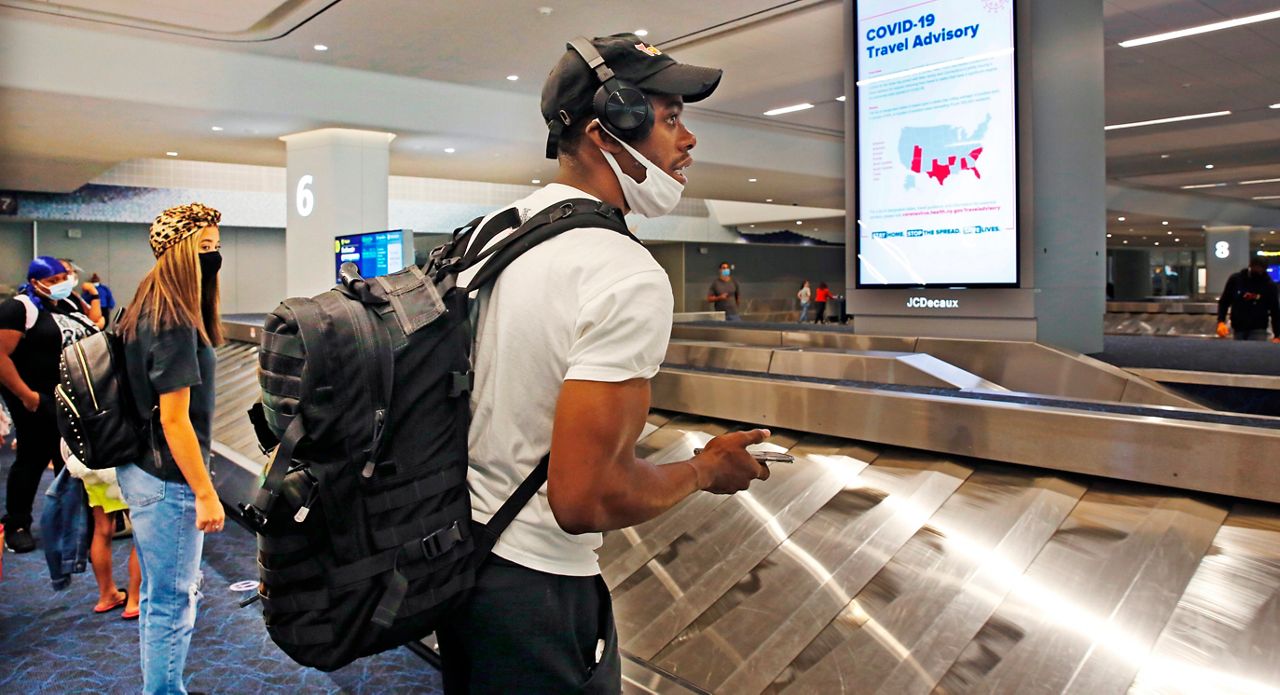It's painful for Liwen Li to recall her father’s final moments.
"That breaks my heart. Every time,” Li said.
Guilin Li died inside his Brooklyn home on Oct. 29 at age 95. Liwen shared security video of her father’s bedroom on the day he died. The family says his home health aide should have called for help sooner, although it remains unclear at this time whether such a could would've helped.
“The patient clearly called out 911 and she chose to neglect it,” she said.
At 1:32 p.m. Giulin can be heard asking his aide to call 911 in Mandarin. The home health aide can be heard responding to him in Mandarin asking, "What? 911?" She then covers him with a blanket.
“He called out six times 911, 911 and this home health aide just ignored it,” Li said.
About half an hour later, around two o’clock, the video shows Guilin requesting the aide call 911 again. The home health aide can be seen checking on him and then making a phone call. It’s unclear who she spoke to, but it was not 911.
“My father so desperately called out so many times. I mean one time is already enough," Li said.
We combed through the security footage after his last plea for help at 2 p.m. The home health aide made no other calls until 5 p.m. That's when Li says she received a call from the home health aide, telling her her father was unresponsive. She immediately raced to his home.
“I found my father without breath. His hands are cold," she added.
Li says the home health aide was on the phone with 911 when she arrived around six o’clock that evening – nearly five hours after his initial plea for help.
“My dad shouldn’t die. He shouldn’t die that way," said Li. "He suffered a lot before he died. Maybe a timely 911 call would save him.”
Guilin's cause of death was listed as hypertensive heart disease. The agency that employs the aide in question has not returned our calls nor responded to our emails sent over the past six weeks. However, the family attorney says the agency told him the aide has been put on leave pending an internal review.
Doctor Mark Lachs is the Director of Geriatrics for The New York Presbyterian Health Care System. He’s not connected to the family or to the home health aide but specializes in elder care.
“Err on the side of caution because the stakes are enormously high," he said.
Lachs said there is no “one size fits all” answer to when 911 should be called.
“How do you distinguish between what might be a trivial concern or complaint and a serious illness?,” he added.
Doctor Lachs said it’s crucial that home health aides have a deep understanding of how their patients act on a daily basis so they can differentiate between a routine request and a serious plea.
“It’s really about a significant change from baseline," said Lachs. "When you see a patient who you know is noncommunicative or interacting in a different way or has a fever or stops eating or has any kind of distress, that would be a call depending on its acuity to 911 or to the agency to ask for direction.”
A lawyer for the Li family says this was only the aide's second day caring for Guilin, but she did have years of prior experience as a home health aide. The family is not pushing for a criminal investigation at this time. Still, Li says no amount of money can heal the pain of losing her father.
“I want somebody to take the responsibility,” she said.
As the investigation continues, Li said she hopes by telling her story, she can empower seniors and their families to advocate for themselves and their rights.
“I hope people will get alert. This kind of situation should not happen again," she said.






